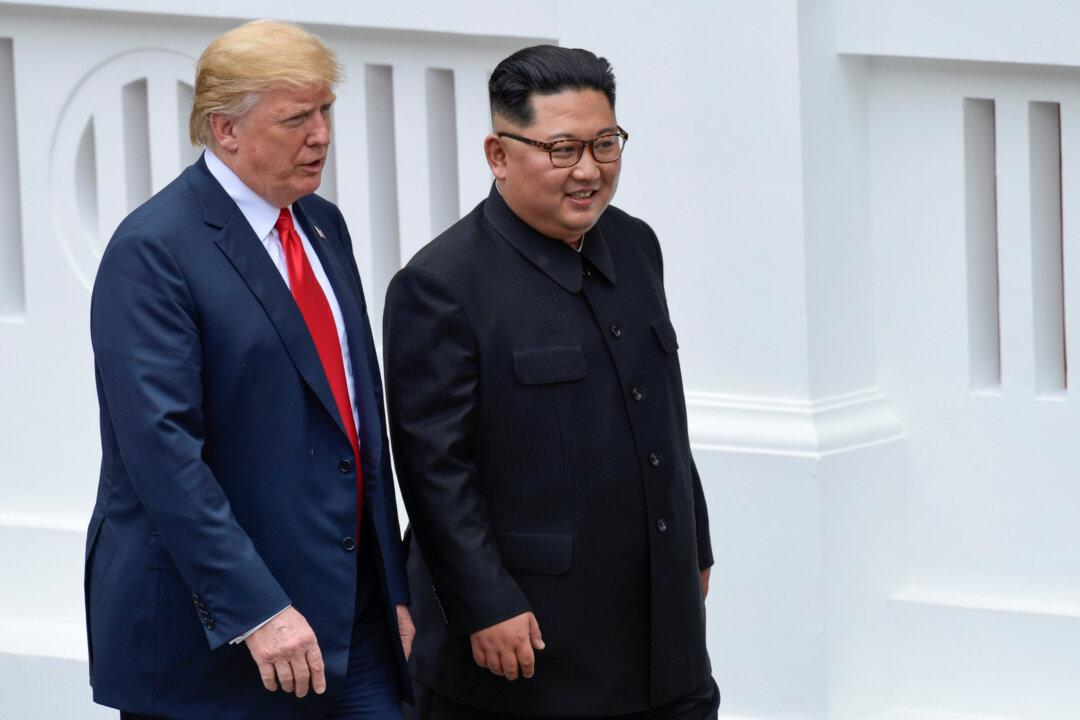SEOUL—North Korea no longer poses a nuclear threat, nor is it the “biggest and most dangerous problem” for the United States, President Donald Trump said on Wednesday, June 13, on his return from a summit in Singapore with North Korean leader Kim Jong Un.
The summit was the first between a sitting U.S. president and a North Korean leader and followed a flurry of North Korean nuclear and missile tests and angry exchanges between Trump and Kim last year that fueled fears of war.





